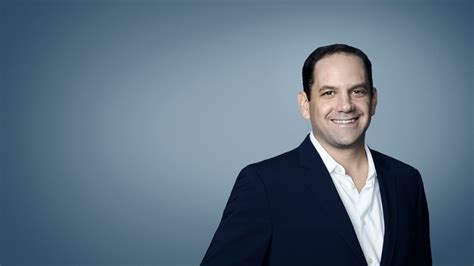A Quote by Gene Weingarten
Reporters are not merely recording devices that take down what people say and repeat it in print; we are expected to use our knowledge and experience both for triage - deciding what's important to cover and what isn't - and for contextualizing, analyzing and such.
Related Quotes
The more you simplify, the better people will perform. People can not understand and keep track of a long complicated set of initiatives. So you have to distill it down to one, two, or three things and use a framework they can repeat, they can repeat without thinking about, they can repeat to their friends, they can repeat at night.
In a print interview, as you may or may not know, they [editors] can do whatever they want. And they do. This is why most people are more hesitant to do print, because they can change it, and they do change it. They even change things that are in quotation marks, which is a pet peeve of mine. I've said to numerous reporters, "Would you read me back my direct quotes?" And they always say no. They always say that's against the policy.
I should say that the useful results of science had accumulated, but that there had been no accumulation of knowledge, strictly speaking, for posterity; for knowledge is to be acquired only by a corresponding experience. How can we know what we are told merely? Each man can interpret another's experience only by his own.
An honorable human relationship- that is, one in which two people have the right to use the word "love"- is a process, delicate, violent, often terrifying to both persons involved, a process of refining the truths they can tell each other.
It is important to do this because it breaks down human self-delusion and isolation.
It is important to do this because in doing so we do justice to our own complexity.
It is important to do this because we can count on so few people to go that hard way with us.
CNN is the only organization with both a 24/7 TV network AND a powerhouse digital product. Rachel Smolkin, executive editor of CNN Digital Politics, has put together a Murderer's Row of talent and the midterms are really their debut. When you combine that effort with the footprint we have in the field and the depth of talent and experience of our anchors, analysts and beat reporters, I don't think there is another organization on the planet that can cover elections the way CNN can.
In the digital world, content has the tendency to lose value, especially on smart devices. We finally found solutions to the problem. We will not merely port games developed for our dedicated systems to smart devices just as they are - we will develop brand new software which perfectly matches the play style and control mechanisms of smart devices.
No one who is angry or shallow can repeat what they've said. The moment you ask a person to repeat, you have won the battle. You have put them on guard. So don't reply angrily and don't take any offense, just say politely, "Yes, I understand, but could you please repeat it?" With that, you have won.
Our knowledge of circumstances has increased, but our uncertainty, instead of having diminished, has only increased. The reason of this is, that we do not gain all our experience at once, but by degrees; so our determinations continue to be assailed incessantly by fresh experience; and the mind, if we may use the expression, must always be under arms.
































